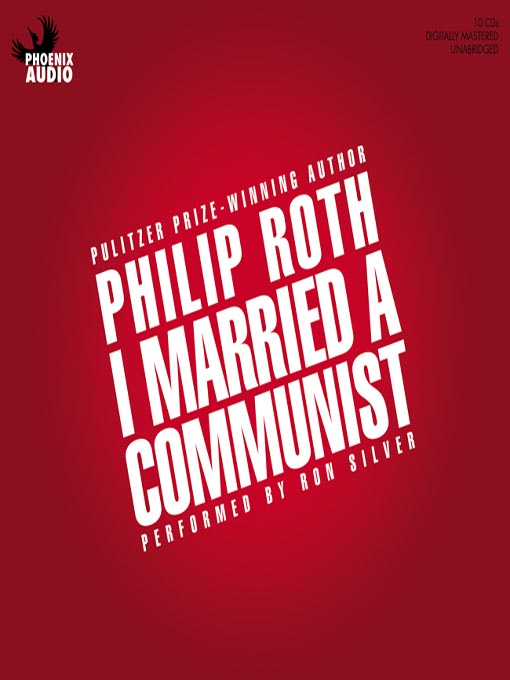Private needs and public acts are inextricably joined... with disastrous consequences. Iron Rinn (born Ira Ringold): Newark roughneck, radio actor, idealistic Communist, and educated ditch digger turned popular performer. A six-foot, six-inch Abe Lincoln look-alike, he emerges from serving in World War II passionately committed to making the world a better place and instead winds up blacklisted, unemployable, and blighted by a brutal personal secret from which he is perpetually in flight. His life is in ruins. On his way to political catastrophe he marries the nation's reigning radio actress and beloved silent film star, Even Frame (born Chava Fromkin). Their marriage evolves from a glamorous, romantic idyll to a dispiriting soap opera of tears and treachery. Eve's dramatic revelation to gossip columnist Briden Grant of her husband's life of "espionage" for the Soviet Union soon spirals their relationship from private drama into national scandal. I Married a Communist is an American tragedy as only Philip Roth can conceive-fierce and funny, eloquently rendered, and deadly accurate.
- New eBook additions
- New kids additions
- New teen additions
- Most popular
- Try something different
- eBooks available now: for kids!
- See all ebooks collections
- New audiobook additions
- New kids additions
- New teen additions
- Most popular
- Try something different
- Thrilling Listens
- See all audiobooks collections


